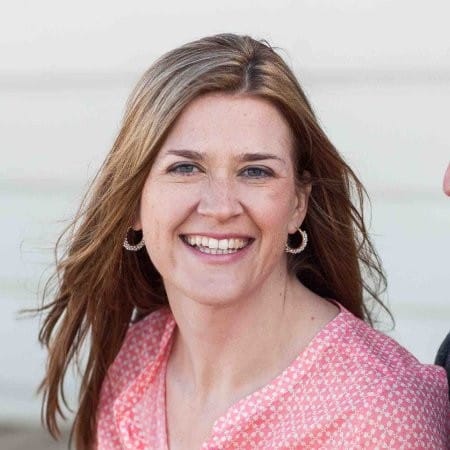Day after day, Dr. Courtney Rubin noticed a pattern in her dermatology practice. Patients would come in for various skin issues–cancer screenings, acne, rosacea–but they'd always slip in questions about skincare. Which products were worth buying? Should they really spend $300 on that eye cream?
Join Bora Celik as he chats with Courtney Rubin, co-founder of Fig.1.
Watch/Listen: YouTube | Apple Podcasts | Spotify | RSS Feed
What struck her wasn't just their curiosity about skincare. It was the disconnect between their enthusiasm and their purchasing behavior. These same patients who eagerly asked about premium products would walk right past the expensive skincare items in the office without buying them.
"If someone is having trouble with their 40 or 50 dollar medical copay, they're not going to be able to build a skincare routine of $300 products," Rubin realized. "That just doesn't make any sense."
This observation led her to question the status quo. Why were science-backed, dermatologist-recommended products so expensive? She discovered something surprising when she dug deeper into manufacturing costs with her business partner, Kimmy Scotti.
"When we actually got into the weeds and looked into the cost of raw materials and packaging and transportation and manufacturing, what we realized is that there was actually a way to make products of that same quality much more accessible to more people," says Rubin.
The skincare industry's high margins became their opportunity. Instead of following the industry's standard pricing model, they decided to cut into their own margins and pass the savings to consumers. This became the foundation for their company, Fig.1.
The name Fig.1 – a reference to scientific paper annotations – wasn't just clever branding. It reflected Rubin's commitment to evidence-based skincare. As she puts it, "We choose to formulate with ingredients like retinol and niacinamide and vitamin C and glycolic acid that have been around for a long time where there's a huge robust body of research that exists, that we know actually work."
Her Korean heritage also influenced their approach. Growing up, she watched her mother and grandmother treat skincare as a ritual, always emphasizing protecting the skin barrier and preventing sun damage. These principles became central to Fig.1's formulations.
Take their retinol product, for example. Instead of creating just another serum, they developed something different: a retinol night cream. "When you use retinol without a moisturizer, you get a lot of irritation and that's why a lot of people are afraid of retinol," Rubin explains. "They've had a bad experience, it's burned their face off." Their solution? They formulated retinol into a hydrating night cream that moisturizes for 24 hours while delivering the active ingredient.
But perhaps most revolutionary is their step-up system for retinol use. Recognizing that many people had "PTSD from retinol," they created three different strength levels. Users start with the gentlest formulation and gradually work their way up to stronger concentrations, allowing their skin to adjust without irritation.
The company's commitment to innovation extends to sustainability. Their products come in refillable packaging, with customers saving $5 when they buy refills. "Nothing drives me more crazy than the amount of packaging that we throw away," says Rubin, "especially when you have a product that you really like and you keep repurchasing and then that packaging keeps going in the trash every single time."
Two years after launch, Fig.1 has expanded globally, reaching customers in Australia through MECCA and the UK through Cult Beauty. But they face the same challenges as many businesses today: rising costs and the challenge of standing out in a crowded market.
Yet Rubin remains committed to their original mission: making effective, science-backed skincare accessible to more people. It's a testament to how one doctor's observations in her practice could lead to reimagining what the skincare industry could be.
Help build the opportunity economy for creators and brands. Request your invite at collabs.io



